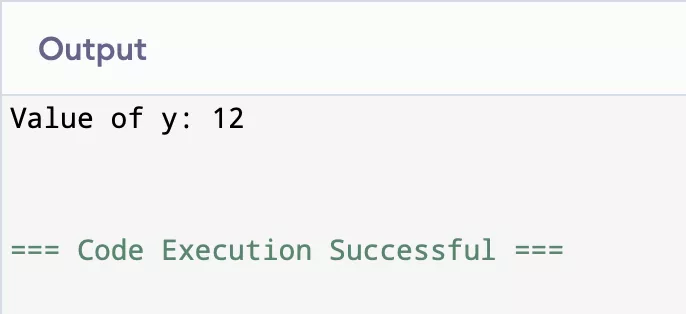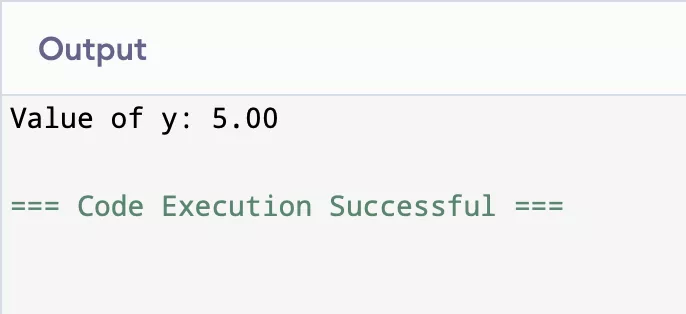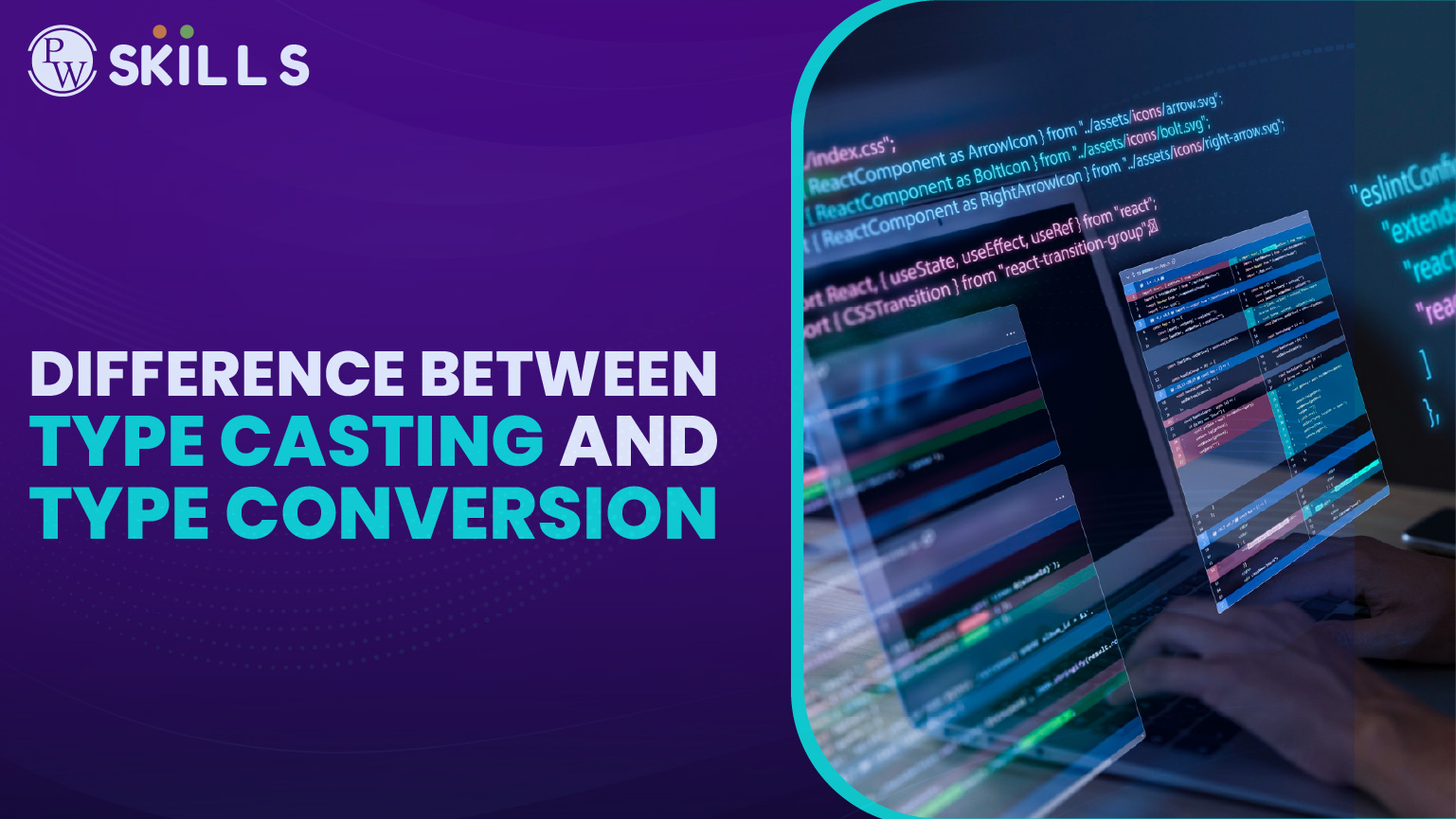The difference between type casting and type conversion is a topic of interest for developers who are coding in the C++ language. Despite both might sound similar, they share some distinct differences. When you are coding, there might come many situations where you have to change the data type of a variable from one type to another.
Type casting is something not permanent, while type conversion is a permanent action. Here, we will understand the difference between type casting and type conversion.
What Is Type Casting In Programming?
Type casting means explicitly telling the coding compiler to convert or present a value to another type. This is a way of letting the compiler know that a value must be treated as another type.
- In type casting, a data type is converted to another data type using the casting operator.
- The casting operator is used to cast a data type as another type. It is implemented by using parentheses before a variable you want to convert to another type.
- This is generally done during the program design, where a programmer converts one data type to another data type.
- Here, programmers take the full responsibility of converting data types into one another and ensure no major data loss.
The Syntax of Type Casting In Programming
| resulting_datatype = (target_datatype) variable; |
Here, ( ) = casting operator
- Target_datatype = This is the data type you want to convert the value to.
- variable = This is the value or variable that you want to convert.
- resulting_datatype = This is the resulting data type of the variable you want after the conversion
Read More: Python Type Conversion (With Examples)
What Is Type Conversion In Programming?
Type Conversion is a frequently used practice, where a compiler in the C++ language automatically converts a data type into another data type at compile time.
- Type conversion is done automatically by compilers to allow conversions that are safe and important.
- The only condition here is that the destination data type must not be smaller than the source data type.
- The type conversion is also known as Widening Conversion due to the above-mentioned condition.
- The data type must be compatible to make the type conversion possible.
- You won’t need any special operator, like type casting, to make the conversion possible, as it is an implicit operation.
- The compiler makes the conversion of the data automatically to ensure that it matches the destination or related variables in the program.
The Syntax of Type Conversion In Programming
| resulting_datatype = source_variable; |
- Here, resulting_datatype is the output processed by the compiler, making the necessary type conversion.
- The source_variable is the initial data type for which conversion is about to happen.
You will clearly understand the difference between type casting and type conversion with some examples given below, with output.
Explicit Type Conversion vs Implicit Type Conversion
With type conversion, you can perform explicit conversion as well as implicit conversion. The implicit conversion comes into action when the value of one data type is assigned to a variable of another data type. Check a simple example of implicit conversion.
| int num = 14;
Double num1 = num2; |
Here, the num1 stores the double variable type from num, which was initially a simple integer data type. This is an implicit conversion in type conversion.
During explicit conversion, it makes use of casting operators, which explicitly change the data type of a variable from one type to another.
| double num = 3.14;
int num1 = (int)num; |
This will convert the data type of num i,e. Double or floating value to an integer value using an explicit type casting operator.
Difference Between Type Casting and Type Conversion: Example
Let us take examples to understand the difference between type casting and type conversions properly.
1. Type Casting
The type casting conversion is done externally by a programmer or someone with knowledge of data type conversions. Let us understand it using a simple example below.
| #include <iostream>
using namespace std; int main() { float x = 12.75f; int y; y = (int)x; cout << “Value of y: ” << y << endl; return 0; } |

Here, x is a float type variable having a value of 12.75, which can be explicitly converted into an integer using the casting operator i,e. (int)x. The fractional part of the float variable is truncated.
2. Type Conversion
The type conversion automatically converts one data type to another at compile time. Let us take a simple example to understand it.
| #include <stdio.h>
int main() { int x = 5; float y; y = x; printf(“Value of y: %.2f”, y); return 0; } |

Here, the integer value of x is converted into a float type using automatic type conversion in the C programming language. This is a safer method as it converts the data type to match the requirement.
Difference Between Type Casting and Type Conversion
Now, to sum up the complete difference between type casting and type conversion, you can take the help of the given table below.
| Type Casting | Type Conversion |
| Type casting is a method of explicitly making the data type conversion. | Type conversion is the automatic conversion of data type from one to another during compile time. |
| Type casting can be implemented for any type of data. | Type conversion can only be implemented for compatible data types. |
| Type casting is a manual process | Type conversion is an automatic process. |
| There are chances of losing data or unexpected output with type casting. | In type conversion, there is no chance of data loss, and it is safe. |
| In type casting, you need a casting operator to cast a data type to another data type | In type conversion, you do not need any type of operator to make the conversion, as it can take place implicitly without anyone intervention. |
| In type casting, the destination or resulting data type must be smaller than the source data type during conversion. | In this type of conversion, the destination data type does not need to be smaller than the source data type. |
| Type casting is generally performed by an expert programmer during program design. | Type conversion is done at compile time. |
| Type casting is also known as narrowing conversion, as the resulting data type is smaller than the source variable data type. | Type conversion is also known as widening conversion, as the destination data type must not be smaller than the source. |
| Type casting is frequently used in competitive programming and other work. | Type conversion is not preferred in competitive programming as it might give unreliable output. |
| This might lead to data loss when a conversion is not successful. | The implicit conversion can lead to unexpected results when not handled properly. However, it is much safer than type casting. |
| This practice is common in statically typed languages, such as Java or C++ | This type of conversion is suitable for statically as well as dynamically typed languages, such as Python. |
Learn C++ Programming With PW Skills
Become proficient in Data structures and C++ programming with PW Skills Decode DSA With C++ Course. Engage in an interactive learning environment with top industry experts guiding you throughout the course. This course is designed for people who want to build their career in the tech industry.
Engage in interactive learning using recorded videos and practice and master the fundamentals of C++ with concepts of data structures and algorithms in C++. Prepare for job interviews and competitive programming with pwskills.com
Difference between Type Casting and Type Conversion FAQs
Q1. What is type casting in programming?
Ans: Type casting is a method of explicitly converting one data type to another using the casting operator. It can be implemented for any type of data that needs to be converted.
Q2. Are type casting and type conversion the same?
Ans: No, type casting is a manual process where data conversion is done by a programmer, while type conversion is an automatic method where data conversion is done automatically.
Q3. Why is type casting called a narrowing conversion?
Ans: Type casting is known as a narrowing conversion, as the resulting data type after conversion is smaller than the source data type.
Q4. What is the difference between type casting and type conversion?
Ans: Type casting is done by a programmer or developer explicitly, while type conversion is an automatic conversion to ensure data type matching. No additional operator is needed for type conversion, unlike type casting.

